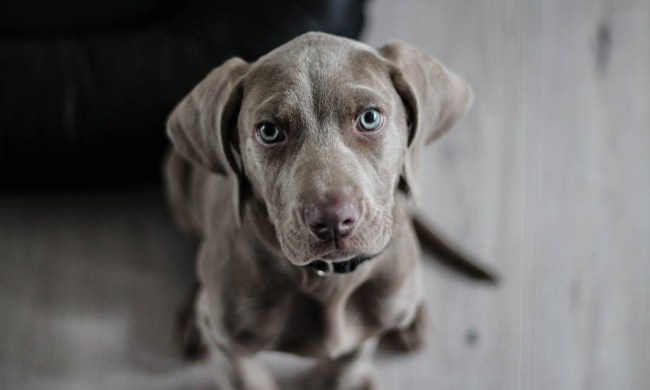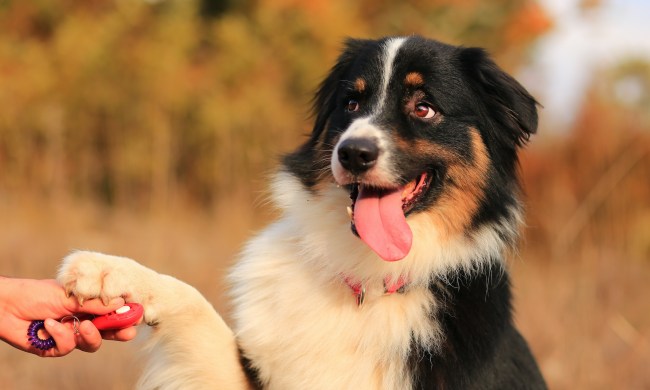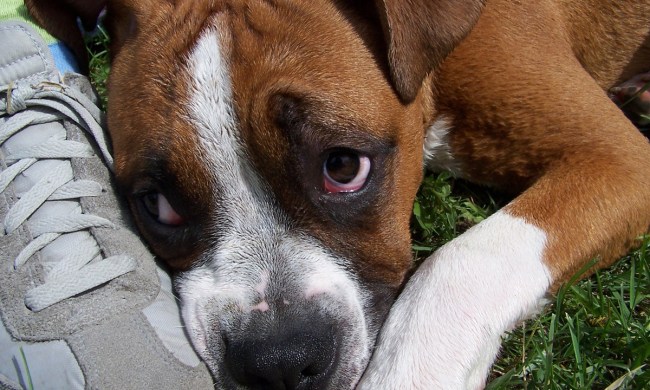German shepherds have proven time and again that they’re one of the most loyal breeds there is. They love working alongside their owners, and they’ll protect you fiercely when trained properly. These are just a few of the reasons why German shepherds are the second-most-popular pet dog in America, according to the American Kennel Club.
They’re also popular as guard dogs, whether in the home or on a larger property like a farm or warehouse. However, to become as skilled as these working pups are, proper German shepherd training is essential. But what exactly does that mean?
Here’s how to train your German shepherd to be a guard dog.
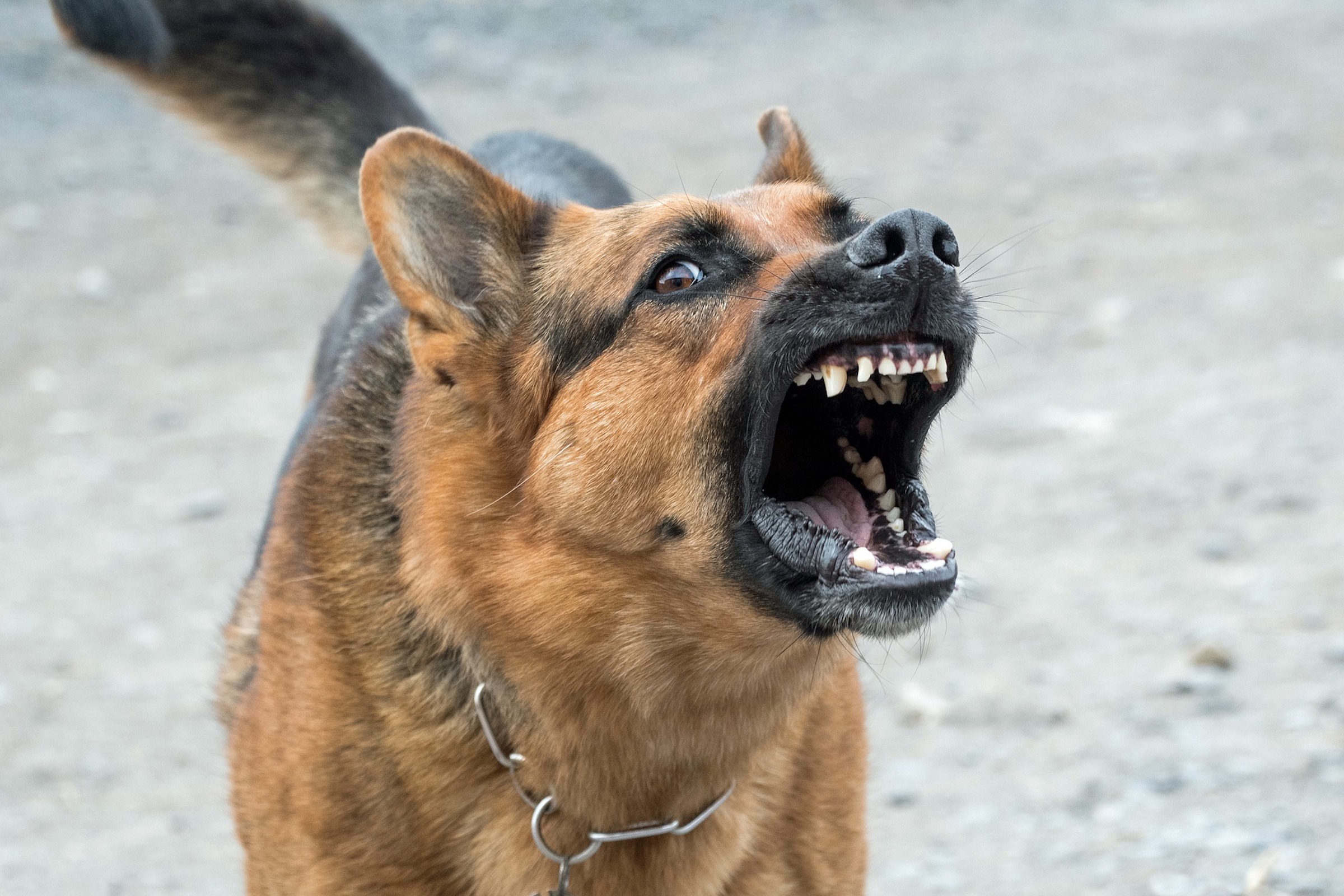
What does a guard dog do?
Unfortunately, there’s a lot of confusion around what a guard dog does, as many people associate them with attacking or aggression. This, however, is not necessarily the case. Although a guard dog is trained to watch for danger and alert their owners, they are not necessarily trained as an attack dog — they may be only a watchdog. Either way, the goal of the guard dog is to keep their family and property safe, either by barking or by physical action.
This article will focus on training your German shepherd to guard by barking, not attacking. Training any dog to do physical protection work should be managed by professionals who have firsthand experience handling and training protection dogs.
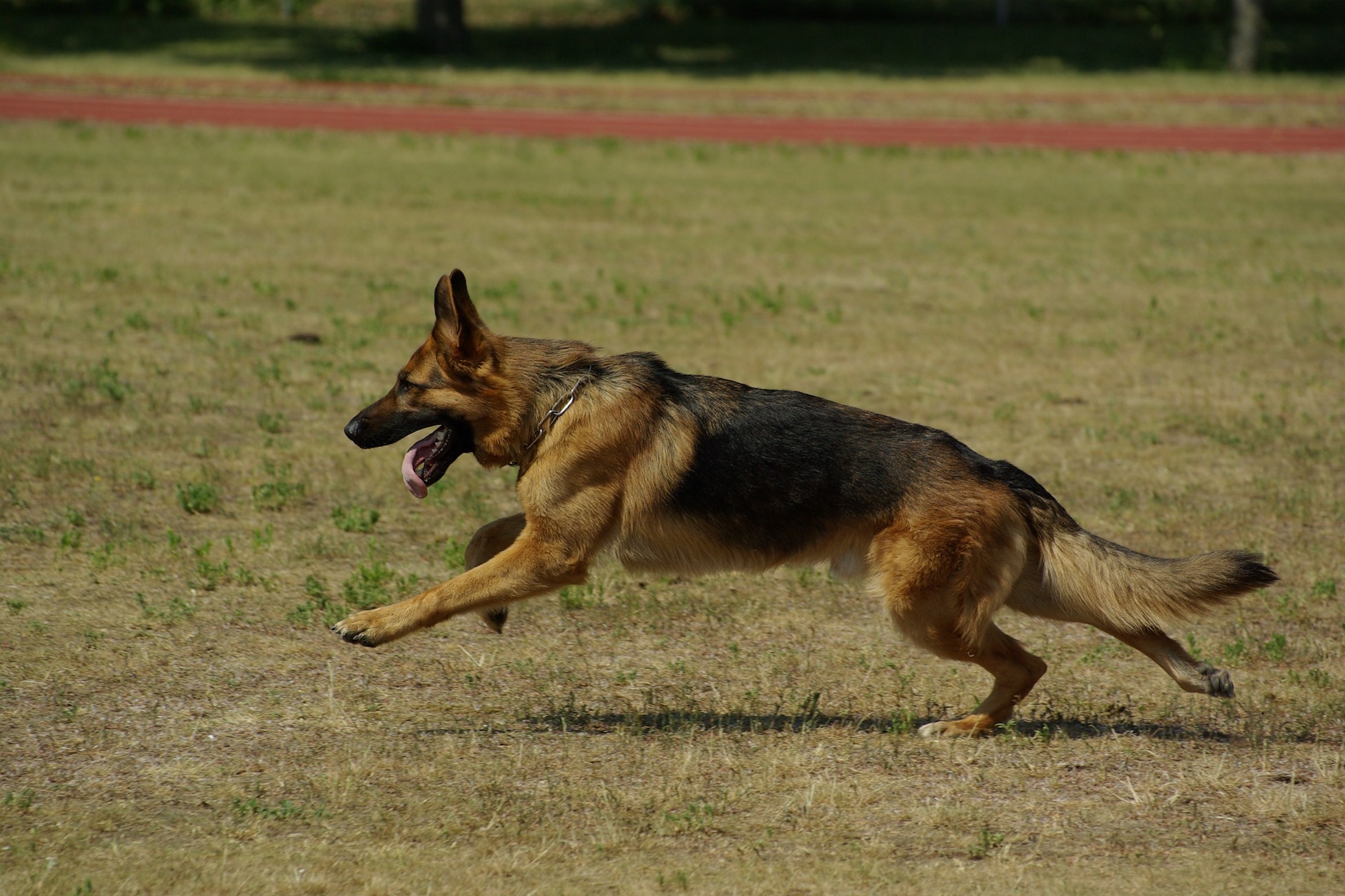
How to train your German shepherd to be a guard dog
As with any dog training, it will be exponentially easier to begin when your German shepherd is a puppy. The younger the dog is, the easier (and possibly faster) she’ll be able to catch on to new behaviors — and the longer you’ll have to reap the rewards of your efforts.
Find the right incentive for your dog
Until guarding becomes a habit for your German shepherd, you’ll need to teach her what’s expected. Effective training, whether it be guarding or basic obedience, will include some kind of reward for your pup, whether it be a treat, toy, or some love. No worries if it takes some trial and error to discover just what motivates your dog — it’ll be so worth it!
Master obedience training and socialization
Before you can get to the nitty-gritty of guarding, you and your dog need to master the basics of obedience. If your pup won’t listen to “sit” and “stay,” how can she learn something more complicated?
A group class will help your dog practice obedience while gaining experience around other people and pets. It’s important to socialize German shepherds, especially ones who will be guard dogs, so they have a baseline idea of what counts as appropriate behavior whether they’re guarding or not.
Introduce your dog to what she will be guarding
For your dog to do her job correctly, she’ll need to understand what she’s going to be guarding. Your shepherd’s natural instincts will help a lot during this process, so you may have an easier time than you think on this step!
You can introduce your dog to her object or space in a variety of ways, but one idea stays the same: Helping your dog understand what’s in her territory will be the most important thing. If your German shepherd is meant to guard a person, she should first establish a bond with that person — she may become naturally protective. For pups who are guarding a house, taking them on a walk around your home’s perimeter will help hammer down the idea that your space is their space, too.
Don’t let your German shepherd bark at anything she isn’t guarding
Because guarding consists of watching and alerting, you want to make sure your dog understands not to alert for just anything. This will definitely take some time and practice, but consistency is key when getting your buddy to understand when to bark and when not to.
At this step, adding a few more commands to your repertoire may be helpful for both of you. Even your basic “no” command will go a long way in helping your dog understand and eventually anticipate the right situations.
Practice and reward desired behaviors
Perhaps the most important step of the process is practicing and rewarding the guarding behaviors you want to see. Of course, it’s best to catch your dog in the act of guarding naturally and then rewarding her handsomely, but that’s not likely to happen all that often. Instead, many pup parents stage a trespassing situation in which they have a stranger approach their home, self, or dog — and then reward them, of course!
Training your German shepherd to be a guard dog is time-consuming and requires some hard work, but its benefits last for life. Since this breed is so highly motivated and intelligent, your dog probably will help you with the training just as much as you’ll help her. Could you ask for more in a loving, protective companion?

